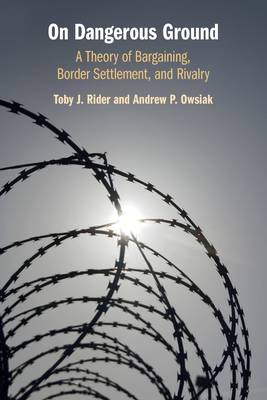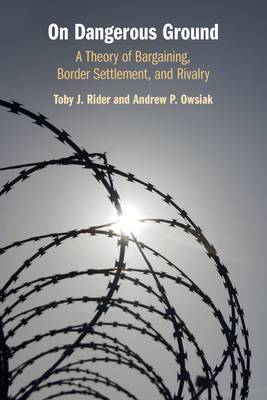
- Afhalen na 1 uur in een winkel met voorraad
- Gratis thuislevering in België vanaf € 30
- Ruim aanbod met 7 miljoen producten
- Afhalen na 1 uur in een winkel met voorraad
- Gratis thuislevering in België vanaf € 30
- Ruim aanbod met 7 miljoen producten
Zoeken
On Dangerous Ground
A Theory of Bargaining, Border Settlement, and Rivalry
Toby J Rider, Andrew P Owsiak
Paperback | Engels
€ 47,95
+ 95 punten
Omschrijving
As a rule, countries consider clearly defined international borders to be paramount for their survival and prosperity. Most borders gain definition peacefully and, once they do, these definitions stick (i.e., the border remains settled). The failure to define borders, however, produces protracted, geopolitical, militarized competitions (or rivalries) between neighboring countries. Rider and Owsiak model this failure as a particular type of bargaining problem - namely, bargaining over territory that affects the distribution of power between neighbouring states significantly - that undermines efforts to resolve border disagreements peacefully. Countries must then overcome this bargaining problem or risk falling into a protracted rivalry, which then needs to be addressed with more resources. The authors develop a theory of how borders settle. They then explore the consequences of the failure to settle, theoretically connecting it to the onset of rivalries. This leads to the process that helps rivals overcome the bargaining problem, resolve their border disagreement, and terminate their rivalry.
Specificaties
Betrokkenen
- Auteur(s):
- Uitgeverij:
Inhoud
- Aantal bladzijden:
- 355
- Taal:
- Engels
Eigenschappen
- Productcode (EAN):
- 9781108794541
- Verschijningsdatum:
- 3/11/2022
- Uitvoering:
- Paperback
- Formaat:
- Trade paperback (VS)
- Afmetingen:
- 152 mm x 229 mm
- Gewicht:
- 476 g

Alleen bij Standaard Boekhandel
+ 95 punten op je klantenkaart van Standaard Boekhandel
Beoordelingen
We publiceren alleen reviews die voldoen aan de voorwaarden voor reviews. Bekijk onze voorwaarden voor reviews.











